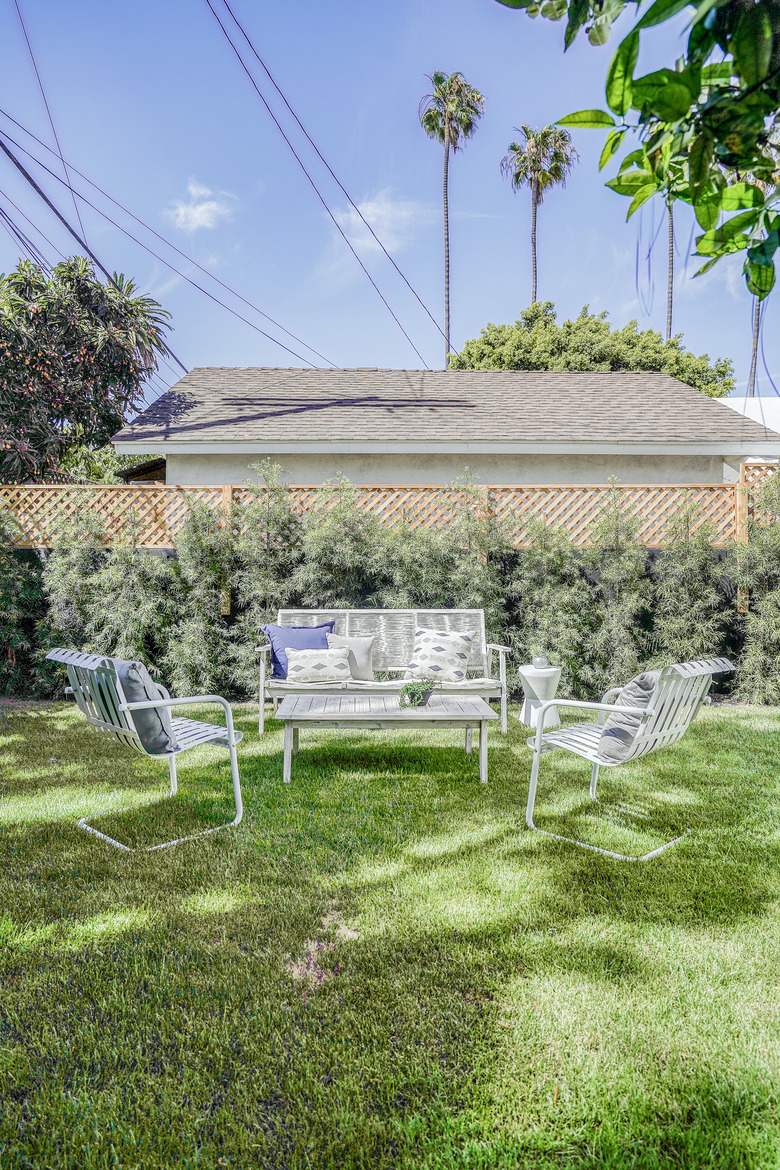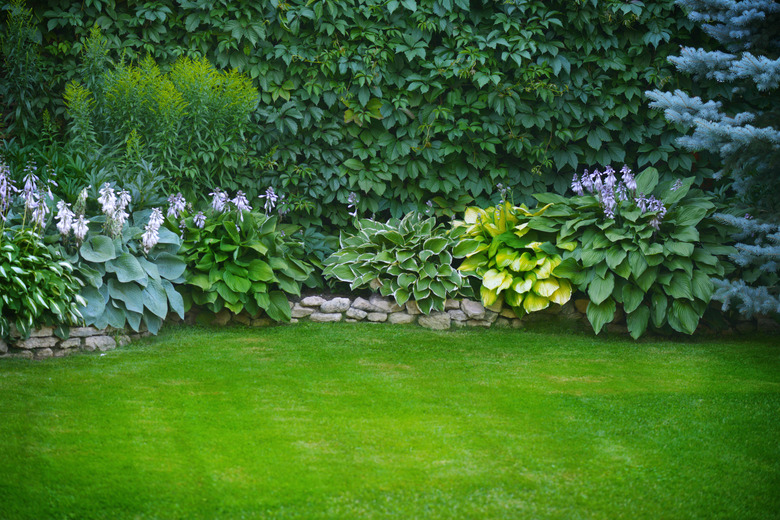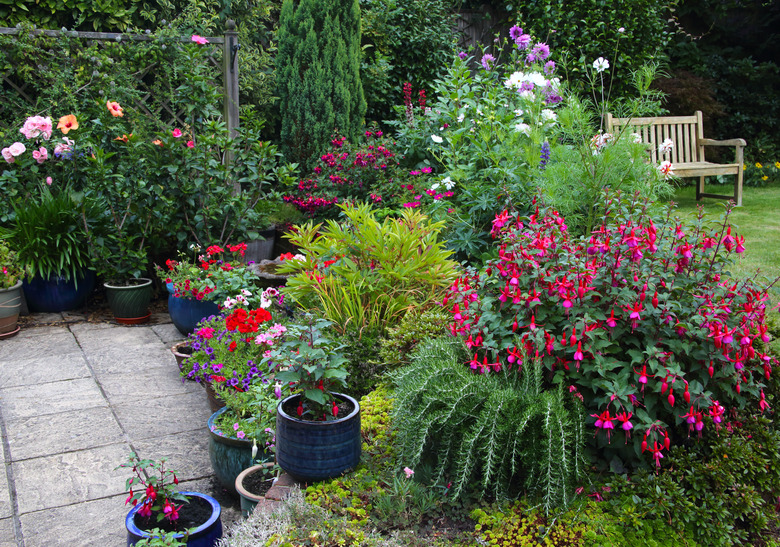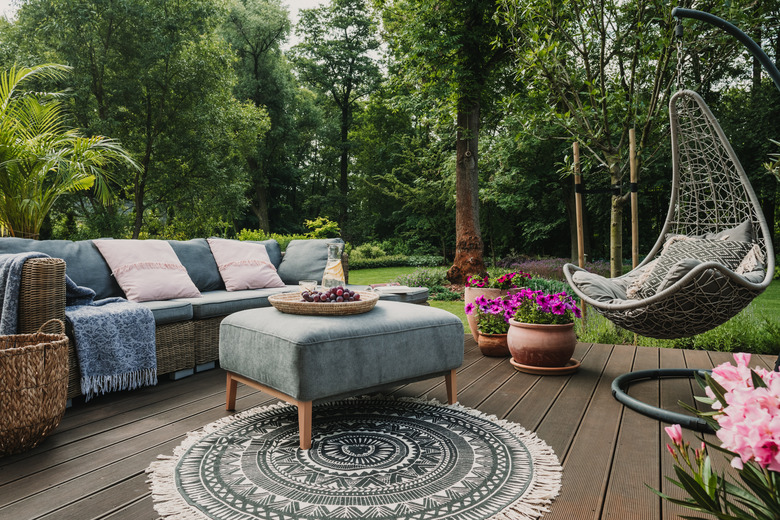A Homeowner's Guide To Summer Yard Care
We may receive a commission on purchases made from links.
If you're into lush lawns and attractive flower beds, the lazy days of summer may not feel so lazy after all. While there is much to be said for spending a sunny afternoon lounging in your hammock, you'll feel better about taking a break after you've completed your summer yard care routine. Summer is a busy season for plants, and they'll look to you for a little TLC along the way. Provide some basic lawn care and maintain your flowerbeds and your landscape will reward you with a beautiful outdoor space in which you can relax.
Summer Maintenance for Lawns
Summer Maintenance for Lawns
Among the most important care tips for your summer yard is maintaining the grass—and keeping your summer landscape looking its best means frequent mowing. Before you mow, check the height setting on your mower. You should never remove more than 1/3 of a blade of grass when mowing. Resist the urge to cut the grass as short as possible so you so you can use your lawn mower less. Taller grass shades the soil better and requires less irrigation as a result.
Remember that the summer heat makes it difficult to keep a healthy lawn. Both you and your grass will tolerate mowing better if you do it in the morning rather than in the afternoon heat. Each time you mow, do so moving in a different direction. This helps to prevent mow lines and ruts in the yard. It also helps keep grass from becoming overly coarse.
Ideally, it's best to apply fertilizer, insect controls and weed killers during your lawn care routine in the spring. If you didn't, it's not too late to do so now. Apply these chemicals carefully when using them in the summer months. Use only the recommended amounts and water the lawn after applying chemicals to avoid burning your grass.
Practice Proper Watering Techniques
Practice Proper Watering Techniques
It's natural for lawns and gardens to need watering during the summer but don't just turn on the sprinkler for a while and call it good. Taking a more nuanced approach will help your plants without unnecessarily inflating your water bill.
Always water your plants in the morning or evening. Watering during the day allows the sun to quickly evaporate any water you provide before your plants benefit from it. Remember to water deeply as well.
You should water your lawn until the soil is damp at a depth of about 6 inches. You can stick a screwdriver in the ground and check it for moisture to determine when you've reached your goal. Planting beds need water too and should receive about an inch of water per week, including rainfall.
Pay special attention to any plants growing in containers when you water. Plants in the ground can spread their roots, stretching a bit deeper to find water if necessary. Plants grown in containers aren't as lucky. Their root depth is limited by the container in which they're planted, so they dry out more quickly than plants in the landscape.
Grow Native Plants
Grow Native Plants
One of the best ways to streamline your summer yard care is to choose native plants for the landscape. Native plants are those that are naturally found where you live. After living where they do for generations, these plants evolve and adapt to local growing conditions.
Cacti, for example, evolved to deal with intense summer drought conditions along with extreme desert heat. If you plant a cactus in its native desert, it will thrive without any help from you. Plant a cactus in the winter snow, however, and it will quickly die from the cold or rot away from too much moisture.
Choosing landscape plants that live where you do makes landscape care much easier. Unless you have a bout of unusual weather, native plants will require very little attention.
Summer Yard Care for Flower Beds
Summer Yard Care for Flower Beds
Hopefully, you found the time to mulch your flower beds in the spring. If you didn't, do so as soon as you can in the summer. Mulch helps the soil around your plants stay moist during dry weather, and it protects plant roots from the heat.
Mulching absolutely reduces the number of weeds in your flower beds, but you'll still need to do some weed control. Keep an eye on your planting beds and weed them as needed. The best time to weed is after it rains when the ground is still damp. Weeds pull out of wet earth much more easily.
Flowering plants and shrubs look beautiful in bloom but lose their luster when blossoms start to die. Deadhead your plants when the flowers start to fade. Doing so makes your landscape look nicer and promotes new flowers on many different plant species.
Unfortunately, many insect pests may like the same plants that you do. Check your garden often for chewed leaves, aphids or other signs of a problem. If you find these pests, get rid of them. Aphids may easily fall off your plants with a shot of water from your garden hose, but other insects can prove to be more tenacious. Your local garden center will understand the pests in your area and can offer advice about which products can safely eliminate them.
Remember Your Hardscape
Remember Your Hardscape
It's easy to forget about your hardscape when your beautiful blooming garden is distracting you, but these landscape features need some summer love too. Whether you spray them or pull them by hand, remember to pull weeds that pop up in between your patio or sidewalk pavers.
Clean up your driveway, patio and sidewalks regularly during the summer. Dropped leaves and flower petals can stain some surfaces as they decompose, so make sure they don't sit too long on hardscape surfaces.
Summer is also a good time to repaint and repair outbuildings as necessary. Now is the time to reseal your deck or fix that broken fence panel. You may have crossed some of these items off your to-do list in the spring. If you didn't, there is no time like the present.
Harvest on Time
Harvest on Time
If you plant your own summer vegetable garden or fruit trees, pay close attention to when your harvest is ready and gather it promptly. If you wait too long, rabbits, deer and other hungry critters may eat your bounty before you do.
Even worse, overly ripe fruits and vegetables may fall from the plant and rot if they are not harvested quickly enough. Rotting food on your landscape can smell bad and attract a lot of the wrong attention. Mice and flies are just a few of the undesirable critters that may start hanging around your property if you fail to harvest your crops on time, so harvest crops as soon as you can. If you're too late, pick up and dispose of any food you grew but can't eat.
References
- National Association of Landscape Professionals: 11 Tips for More Effective Mowing
- Scotts: Summer Lawn Care
- National Association of Landscape Professionals: A Seasonal Guide: Summer Lawn and Landscape Care
- Sarasota: The Do's and Don'ts of Summer Lawn Care
- Better Homes & Gardens: The Ultimate Guide to Seasonal Landscape Maintenance
- Victor: What Food Sources Attract Rodents?



